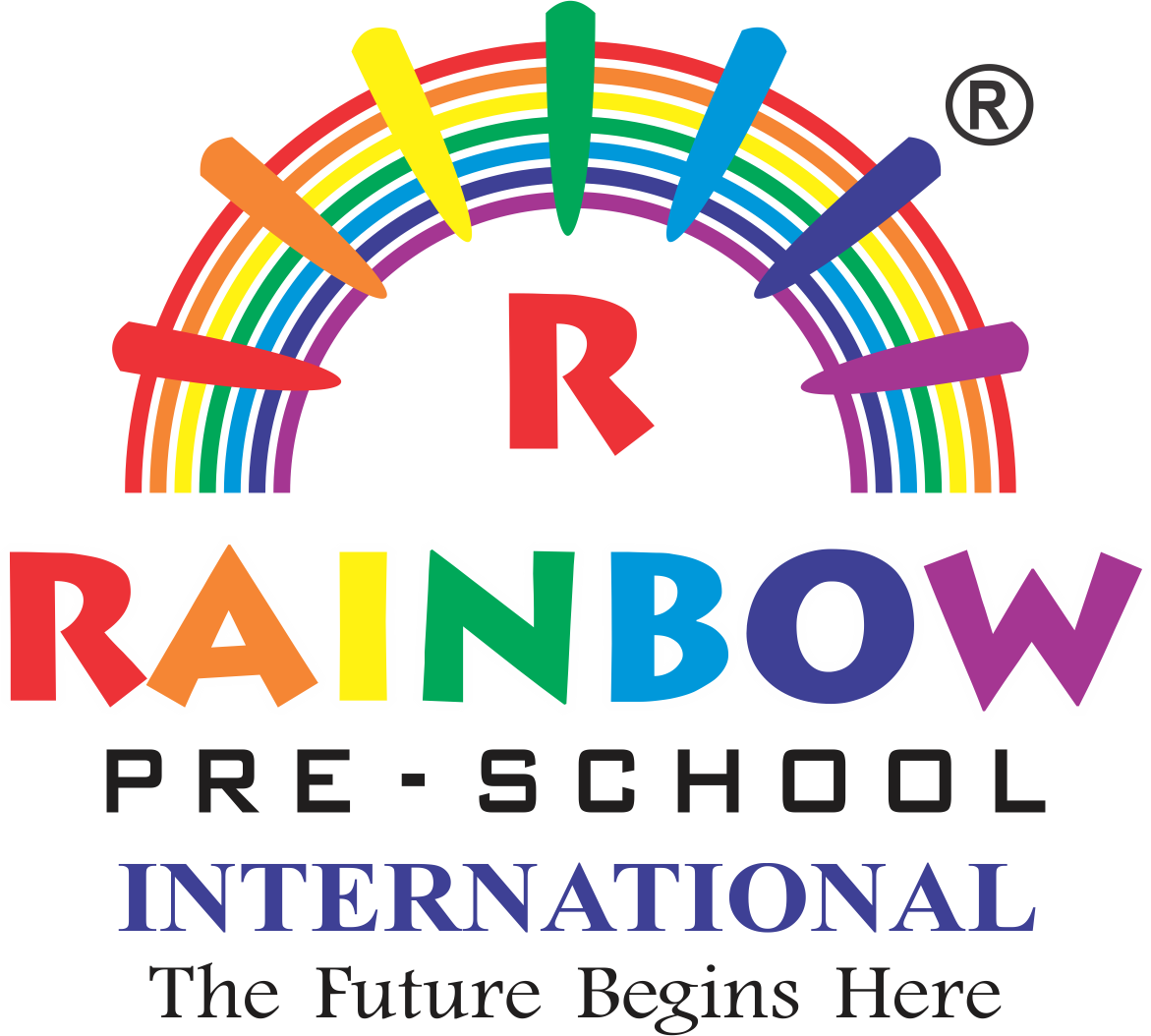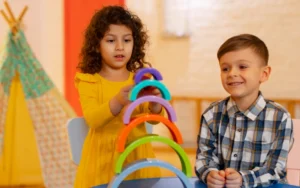Vocabulary building is similar to using building blocks to create a strong structure. You always start with the base which has to be the strongest to carry structures over it. Similarly, vocabulary development for a preschooler is a gradual process involving interpretation of a word by simply hearing it.
Let’s understand how words influence the children’s minds and brush up the process of building vocabulary right from childhood.
Why words are so special to children
1 – One word at a time:
Children start guessing the meaning of a word the moment we speak it in front of them. They understand those lovely words with which we care for them and are very fond of those words. Repeating those words with similar emotions helps children understand their meaning.
2- Words mean the world:
Researchers suggest that children easily associate objects with their names. They look at those words having written names with greater interest, seeking new information for the object in front of them.
3 – Words equal to knowledge:
The more words children know, the better they are able to express themselves. More than learning different words for different objects or feelings, the child gains more if s/he learns variations of one word. As different words are used in different contexts, children learn to differentiate among the appropriate usage of time and place of those words.
4 – Naming as conquering:
Names of different objects, people, animals and events are a rich way of extending communication with children. The child shows the first step of identification of anything, say a pet cat, by calling it by its name. Upon receiving response, the confidence and interest levels of children to learn more words increases.
5 – “That thing” syndrome:
Lack of sufficient reading has made even parents struggle for words. Addressing an object, a feeling or a place as “that thing” is a common but destructive habit among parents. Children, who imitate parents, learn to use “that thing” as a common phrase for objects they don’t know about. This harms the vocabulary of children concerned.
6 – “No”, “Mom” and “Dad”:
We often don’t realize that constant refusal as a response to a child’s demands impacts his/her vocabulary too. We keep saying “no” if they remain awake at bedtime or try to put something dangerous in their mouth while playing. These are extremely valid “no” situations. But think about how many times we say “no” during a given day, or even an hour! Surely there’s a better way of explaining things?
It so happens that children learn to say “no” before calling their parents. Parents should work out a way to explain their refusal in short, complete sentences so that children try to grasp their meanings too.
Below are a few steps to follow the processes to talk better with children so that their vision of the world and vocabulary expand:
- Repeat, use new words: Mindfully reuse a few words in interactions with your family so that the children register these words along with their meanings.
- Limit adding new words to 5: Don’t overwhelm children with as many words as you can in a week. This confuses them. They need time to distinguish among the meanings of different words and totally understand their meanings.
- Use words with contextual clues: You obviously cannot use the dictionary to explain what certain words mean to such small children. So use contextual clues to give examples of words with nearest meanings. This way, children learn to associate words with other words.
- Express words with action: If you’re teaching the word ‘run’, enact the process before children to help them understand better. Expressive explanations register in children’s memory as long-lasting information.
Vocabulary building is a constant process of evolution. Be patient with your children’s progress and you’ll be surprised by their knowledge and interest about words.
Read also: 10 English Word Games for Kids – Improving Language, Literacy, & Conversation









